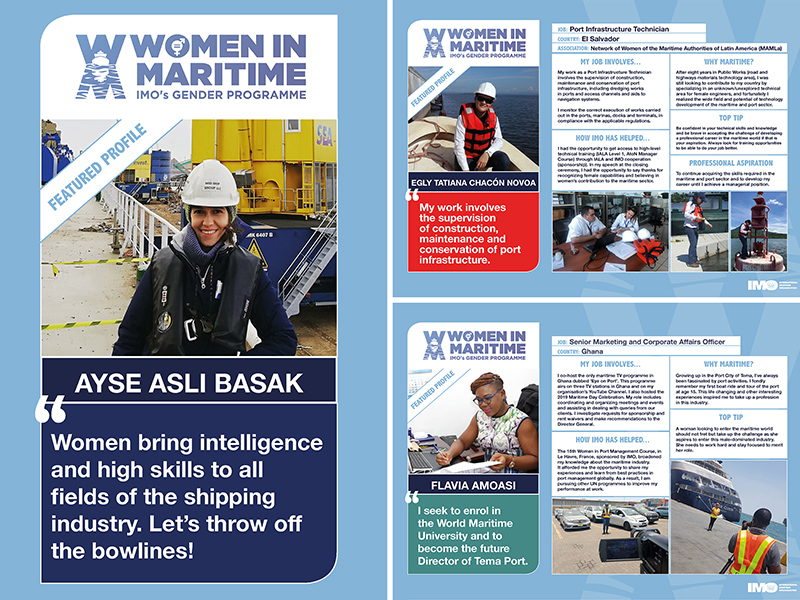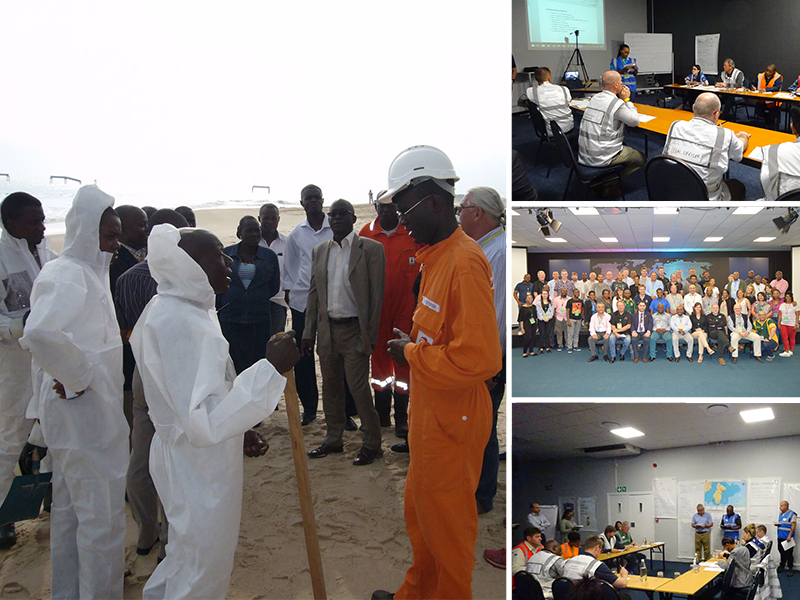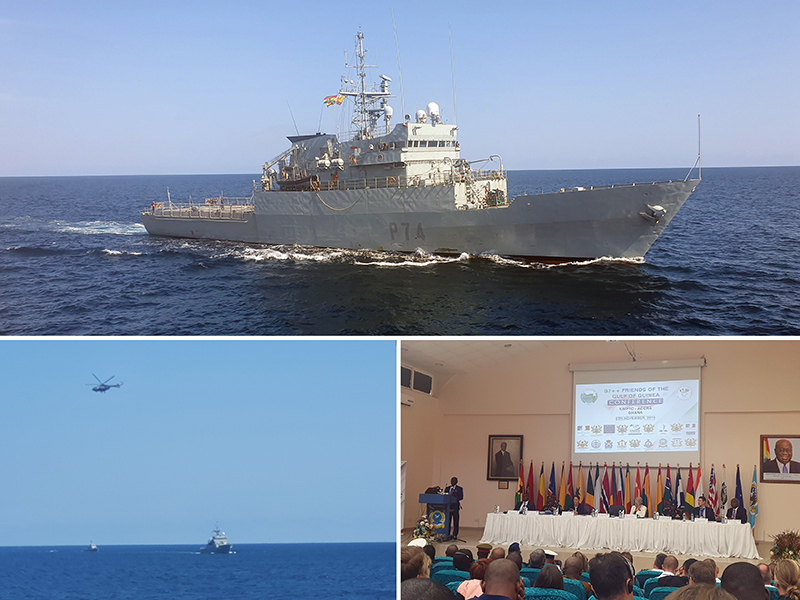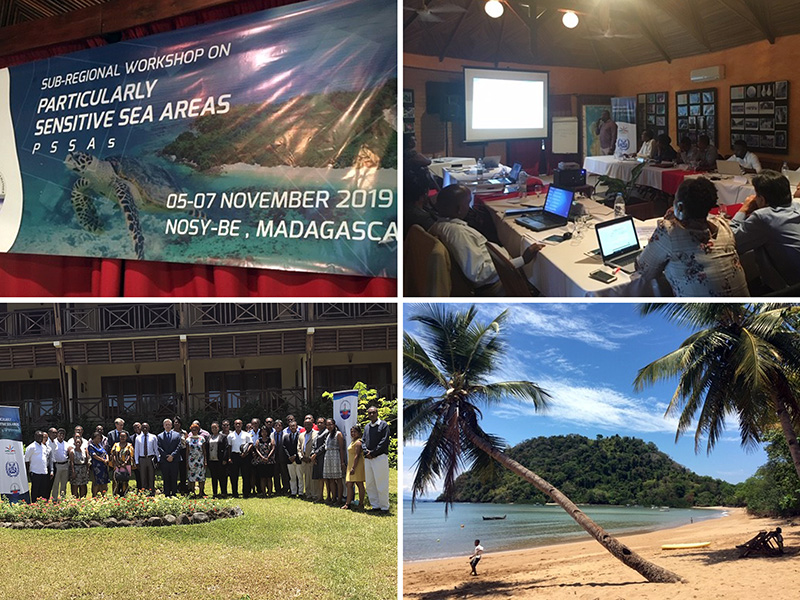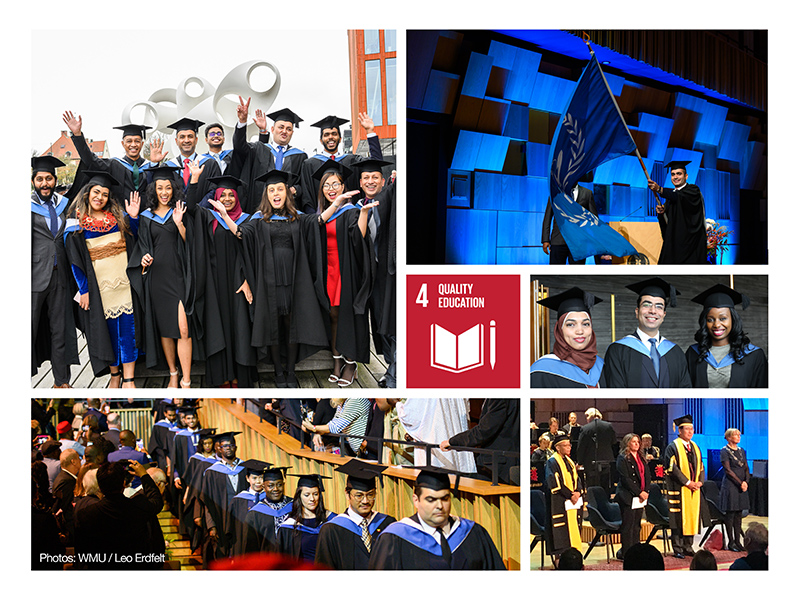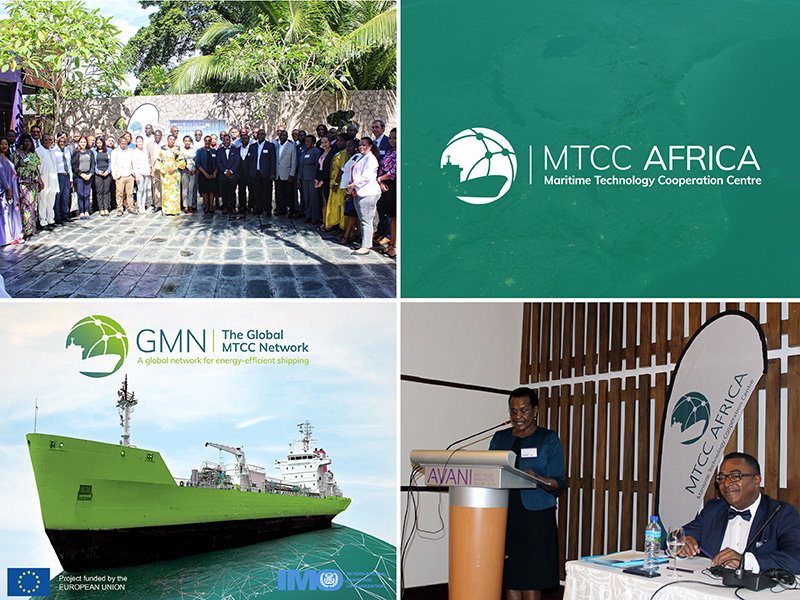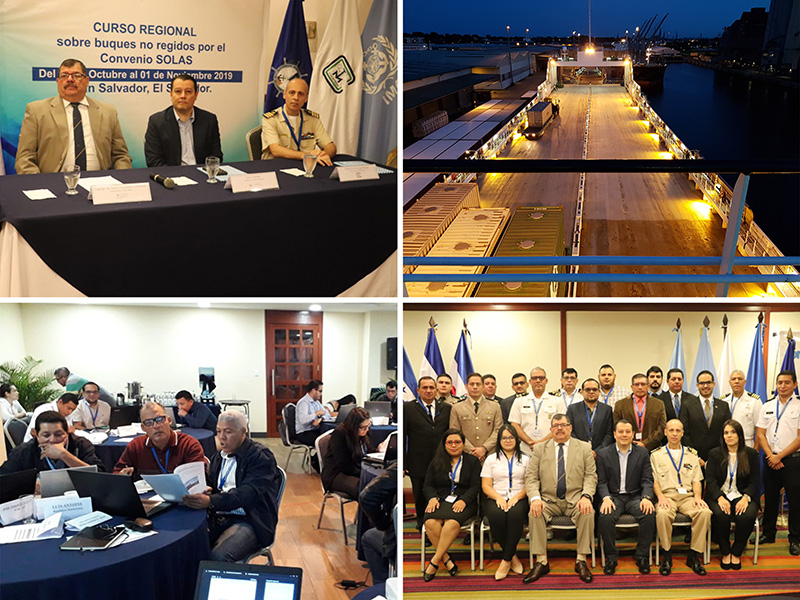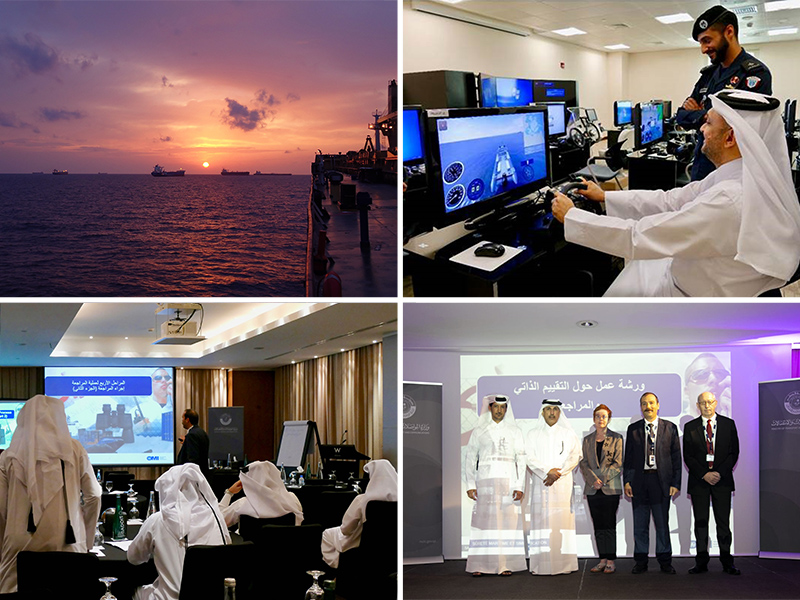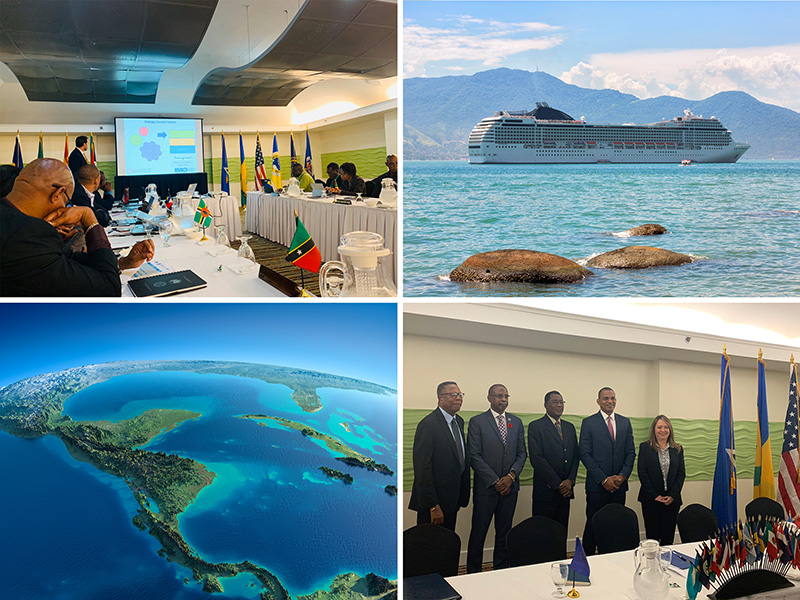Whats New 2019
Skilled, ambitious and increasingly visible – maritime women profiled
"Women bring
intelligence and high skills to all fields of the shipping industry – let’s
throw off the bowlines!”. This is the message from Port Captain Basak, one of
the latest maritime women being featured by IMO under this year’s World
Maritime theme: “Empowering
women in the Maritime Community”. Women from
across the globe are giving an insight into their work, aspirations, how IMO’s Women
in Maritime Programme has supported them – and their top tips for current
and aspiring female maritime professionals. more...
South Africa trained on oil spill response
With important maritime traffic and offshore oil and gas exploration and production off the coast of South Africa, there is increased risk of an oil spill occurring, which poses a threat to the marine environment and wildlife. To address this, a
two-day Incident Management System Training Course was held in South Africa
(6-7 November) to help participants test their National Oil Spill Contingency
Plan. more...
Cooperation to boost maritime security in the Gulf of Guinea
Cooperation and capacity-building are two key ways in which IMO and the wider global community are seeking to support countries to reduce the number of incidents. IMO attended the annual plenary meeting of the countries and organizations members of the G7 Group of Friends of the Gulf of Guinea (G7++ FoGG) in in Accra, Ghana (5-6 November) on invitation of the Franco-Ghana co-chair and with the support of the European External Action Service (EEAS). more...
Protecting seas and coasts in Africa
Designating an IMO Particularly Sensitive Sea Area (PSSA) is a recognition that the identified area may be vulnerable to potential impacts of international shipping. In a PSSA, associated protective measures can be proposed and adopted, such as ship routeing systems, for example, areas to be avoided by ships or no-anchoring areas. But first, the area needs to be identified. A sub-regional workshop in Nosy-Be, Madagascar (5 -7 November) is helping participants from Kenya, Madagascar, Mozambique, South Africa and the United REpublic of Tanzania, to identify potential marine areas that could be designated as PSSAs. more...
Graduates from IMO maritime university take centre stage
Future
maritime leaders from more than 70 countries graduated this week (3 November)
from IMO’s World Maritime University (WMU) in Malmö, Sweden. WMU
was founded in 1983 by IMO as a centre of excellence for maritime postgraduate
education, research, and capacity building. It offers unique postgraduate
educational programmes, undertakes wide-ranging research in maritime and
ocean-related studies and helps build maritime capacity in line with the
Sustainable Development Goals (SDGs). Quality education is itself one of
the SDGs – SDG 4. more...
Going the extra nautical mile for vessel safety
IMO’s most important ship safety treaty – SOLAS – provides for safe merchant shipping, covering a wide variety of topics, from ship construction to fire protection, to life-saving appliances and cargo carriage. SOLAS generally applies only to ships above a certain size which make international voyages, but IMO’s efforts to improve ship safety go further – extending to so-called “non-SOLAS” vessels. These include fishing vessels, domestic ferries, private yachts and small cargo vessels under 500 gross tonnage. To help enhance safety of such vessels in Central and South America, IMO organized a regional training course on non-SOLAS ship inspections, held in San Salvador, El Salvador (28 October – 1 November). more...
National maritime security strategies promoted in the Caribbean
A national maritime security strategy can help bring together all agencies and government departments and stakeholders with an interest in maritime security, to ensure that the country is ready to address all potential maritime security threats. A regional maritime security workshop in the Caribbean brought together senior government officials from seven countries in the eastern Caribbean to kickstart a programme which should see all seven develop their own national maritime security strategies.
